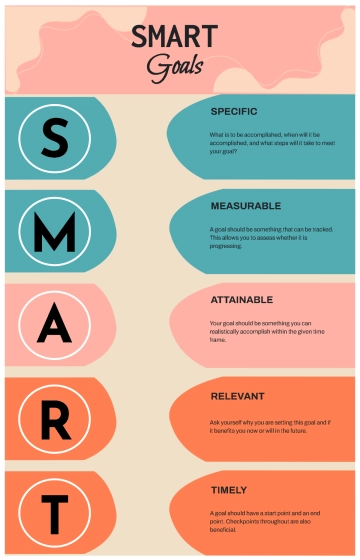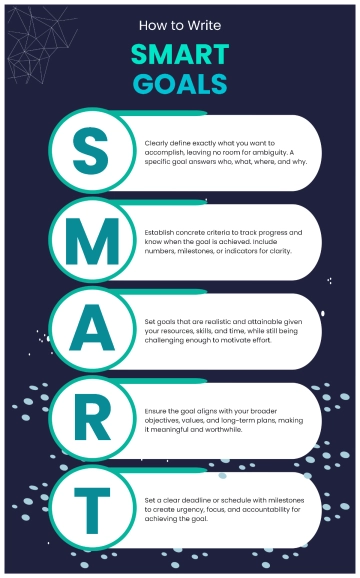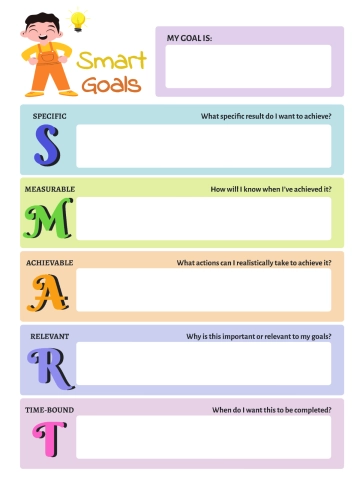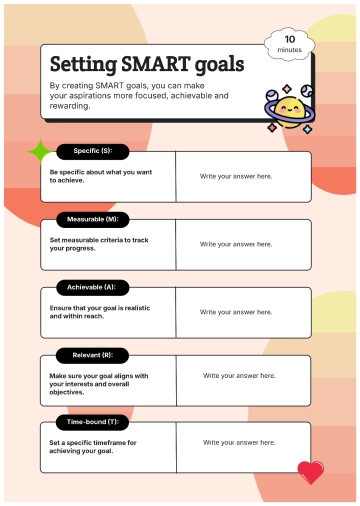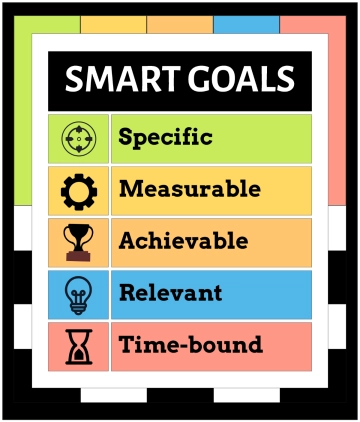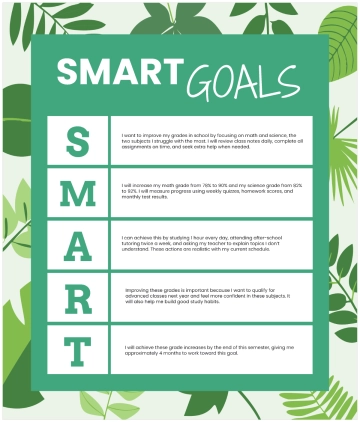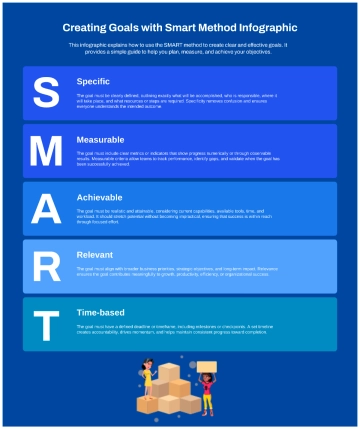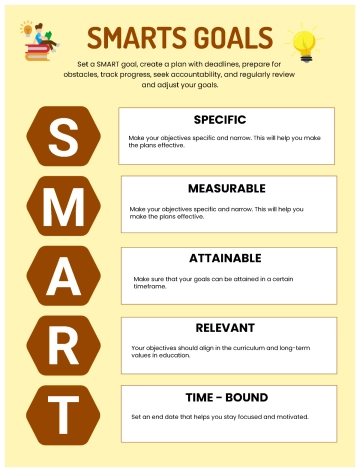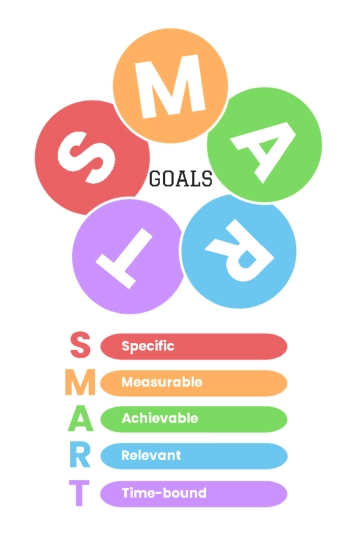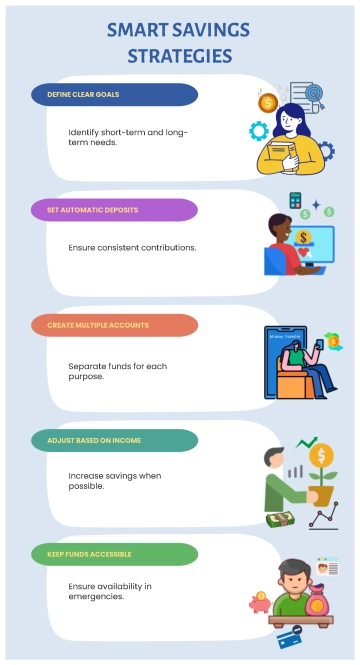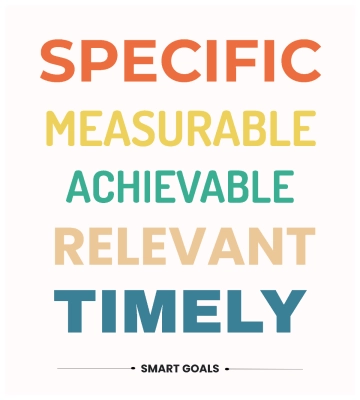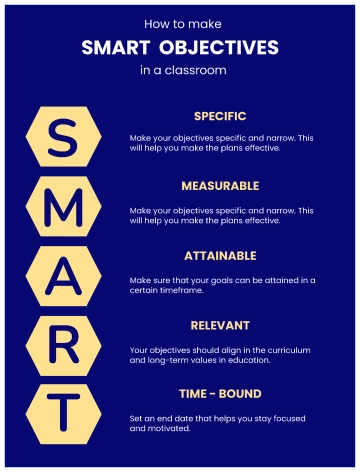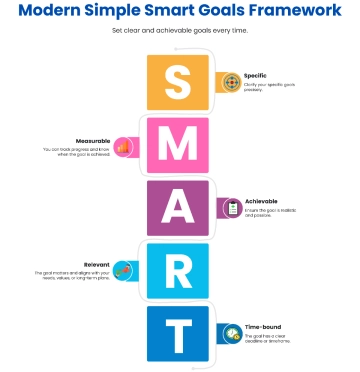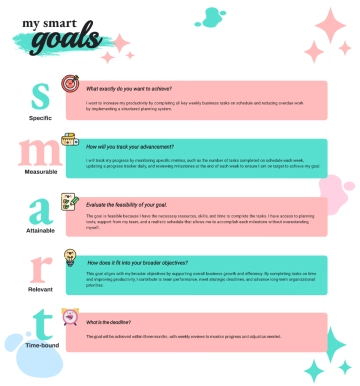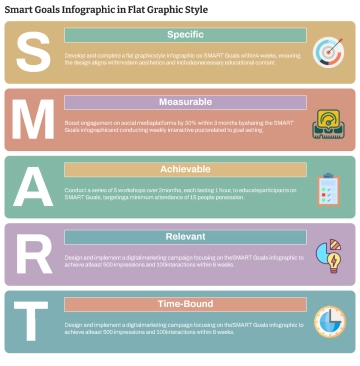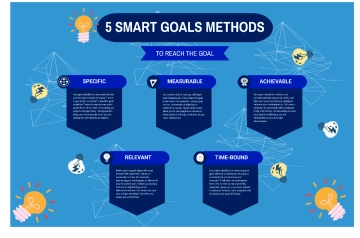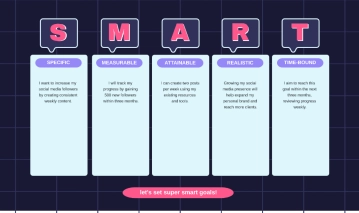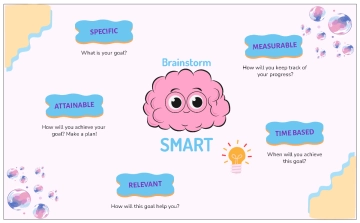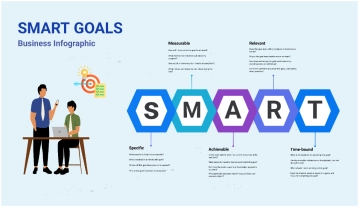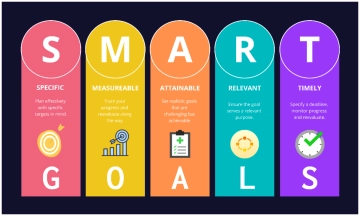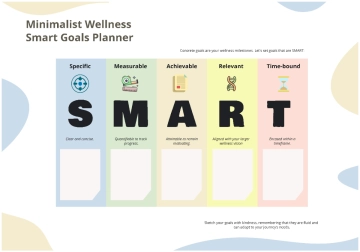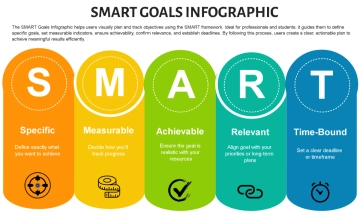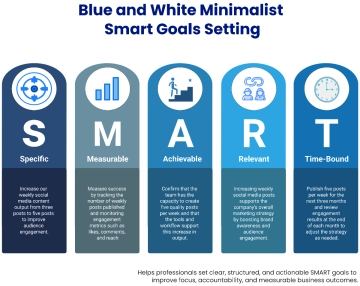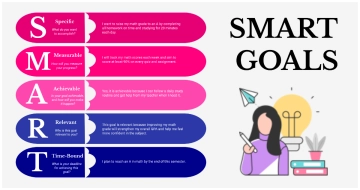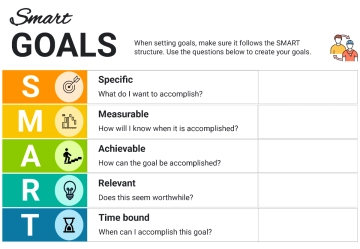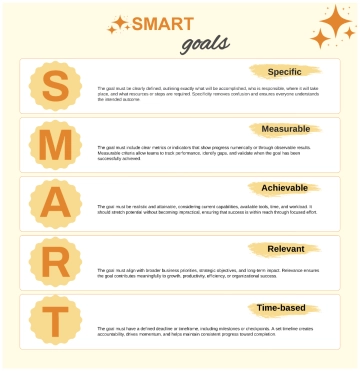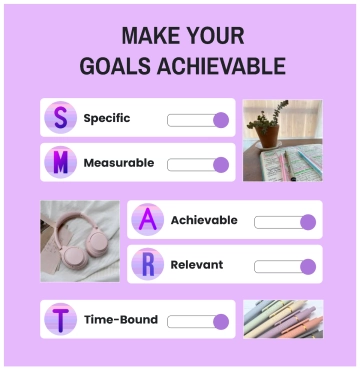Free Routine SMART Goal Setting

Objective/Goal Description
In this guide, we will be looking at how we can improve our time management skills. By setting SMART Goals, we will be able to optimize our time efficiently and effectively, thereby improving our productivity and work-life balance.
SMART Goals
Initial | Initial meaning | Component (Description) |
|---|---|---|
S | Specific | Set a concrete goal for improving time management skills. For instance, "[YOUR NAME] will follow a personalized and structured daily routine to organize tasks better and delegate effectively." |
M | Measurable | Break down the goal into measurable elements. For example, "[YOUR NAME] will complete [NUMBER] tasks within the set time frame every day for a month." |
A | Achievable | Consider what resources or skills are required and ensure they are achievable within the set deadlines. "[YOUR NAME] will have enough time to complete the tasks effectively within working hours." |
R | Relevant | Ensure the goal is relevant and beneficial to [YOUR ORGANIZATION]. "[YOUR NAME]'s improved time management will result in an increase in productivity, positively impacting the mechanism of [YOUR ORGANIZATION]." |
T | Time-bound | Set a deadline to provide a sense of urgency and keep motivation high. "[YOUR NAME] will achieve better time management skills within the next [NUMBER] weeks." |
Action Plan
Identify Time Management Strategies:
Task: Research and identify various time management techniques and strategies that align with your needs and preferences.
Deadline: [DATE]
Responsible: [YOUR NAME]
Develop Personalized Daily Routine:
Task: Create a structured daily routine that incorporates the identified time management strategies to optimize productivity.
Deadline: [DATE]
Responsible: [YOUR NAME]
Set Task Priorities and Deadlines:
Task: Prioritize tasks based on importance and urgency, and set realistic deadlines for each task.
Deadline: [DATE]
Responsible: [YOUR NAME]
Implement Delegation Techniques:
Task: Learn and apply effective delegation techniques to distribute tasks efficiently and maximize productivity.
Deadline: [DATE]
Responsible: [YOUR NAME]
Utilize Time Management Tools:
Task: Explore and utilize time management tools and apps to aid in planning, organizing, and tracking tasks and deadlines.
Deadline: [DATE]
Responsible: [YOUR NAME]
Accountability
Individual: [YOUR NAME]
Support System: Accountability partner or mentor
Frequency of Progress Reviews: Weekly check-ins to review progress and adjust strategies as necessary.
Method of Review: Self-assessment, journaling, or discussions with an accountability partner.
Notes
Consistency is Key: Consistently following the established routine and strategies is crucial for improving time management skills.
Flexibility: Be open to adjusting your routine and strategies based on feedback and changing priorities.
Mindfulness: Practice mindfulness to stay focused and present, which can enhance productivity and time management.
Continuous Improvement: Embrace a mindset of continuous improvement by regularly assessing and refining your time management practices.
- 100% Customizable, free editor
- Access 1 Million+ Templates, photo’s & graphics
- Download or share as a template
- Click and replace photos, graphics, text, backgrounds
- Resize, crop, AI write & more
- Access advanced editor
Introducing the Routine SMART Goal Setting Template from Template.net. Crafted for efficiency, it's an editable and customizable solution, tailored to elevate your goal-setting journey. With seamless integration into our Ai Editor Tool, precision meets convenience. Empower your aspirations effortlessly with this dynamic resource. Achieve smarter, not harder.
